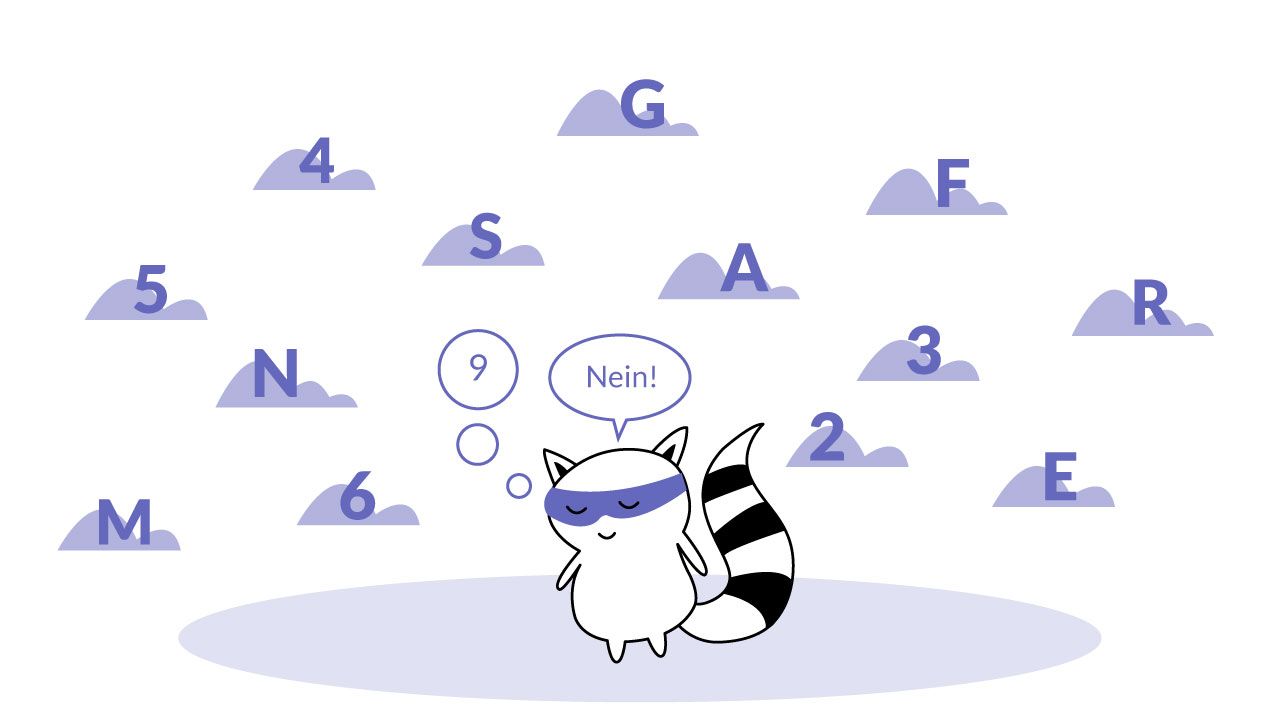
As we already mentioned in our last article, one of the fundamentals of learning a foreign language is expressing your will by saying "yes" and "no." You usually only need to know these two brief terms to be able to answer a variety of questions.
In the German language, you have the words "Ja" to say "yes" and "Nein" to say "no." We looked at affirmation in the previous article, so this time, let’s take a look at negation.
We will go over some situations in which you can use the German "Nein," as well as some additional cases in which you can express disagreement in German, so keep reading.
The German "Nein" as the Simple "No"
So the translation of the English "no" is "nein" in German. It might be simple to remember for English speakers because it begins with the same letter "n” - however, to use it effectively, you should also devote some time to pronunciation.
Native
Translation
Nein
No
To pronounce "nein" correctly, as an English speaker, you should think of the number "nine." The English "nine" and the German "nein" sound nearly identical. In terms of body language, much like English speakers, Germans people shake their heads to express negation.

What About the Word "Not?"
We have just learned that if someone asks you a yes-or-no question in German and you want to give the negative answer, you respond with "nein." But as you know, there are different ways of negation in English, and the situation is similar in the German language.
In English, you would use the construction “auxiliary verb + not + verb” to express that you can’t or won’t do an action. As an example, consider the following sentence: "I can not swim." Instead of "no," here you use "not" to express the negation. In German, you would use a similar construction.
"Not" Is "Nicht" in German
The German word for "not" is "nicht."
Native
Translation
Nicht
Not
So, the same sentence as above in German would be: "Ich kann nicht schwimmen." The term "nicht" always comes after the conjugated verb. If there is a second verb in infinitive like in the example, this one comes last.
To make it clearer, we will give you another example with just one verb. Let's take a look at the following sentence: "Ich rauche nicht" (I do not smoke). As you can see, what requires two words in English is reduced to a single verb in German. The literal translation is "I smoke not."
"No" as "Kein/e" in German
You'll also need to know the word "kein" to use as a negative response in German. English simply utilizes "no," but the Germans have a proper word to tell that the negation is accompanied by a noun.
While "not" or "nicht" is used to negate actions, there is a second "no" in English that is used to negate sentences with nouns. "I do not have time," for example.
In German, that kind of a negative statement would be translated as "kein" or "keine." The German translation of the sentence above would be "Ich habe keine Zeit." To decide if you have to use "kein" or "keine," you have to know the noun’s gender.
Native
Translation
Kein / keine
Not (second negation)

The German Gender - A Short Grammar Point
If you just started to speak German, you probably do not know how gendering of words works in this language. Unfortunately, it is one of the most challenging aspects of German because there are only a few rules that define which gender a word has, and there are a lot of exceptions.
So basically, for every German noun you learn, you must also learn the appropriate article. Even though that seems complicated, it will not be a problem if you practice vocabulary regularly. So to begin, we will demonstrate the three genders of words found in German.
While in English, there is only one article for all nouns, the articles in German can be feminine, masculine, or neutral, depending on the noun they’re paired with. The article "der" is used for masculine nouns, "die" for feminine nouns, and "das" - for neutral nouns.

When using nouns in the plural, you always use the feminine article "die" in German. Aside from that, every pronoun in the sentence that refers to a noun must change its form.
As a result, in the phrase above, you can see the word "keine." Due to the fact that the noun "Zeit" is feminine, the word "kein" must be modified by adding an "e."
Back to Saying "No" in German
We have already gone over the fundamentals of saying "no" in German. You have "nein" as the standard, "nicht" in phrases with a verb in place of the English "not," and "kein" or "keine" in phrases with nouns in place of "no" in English.
Now, let us show you another way of saying "no" that you may need for some specific situations.
If you genuinely do not want something, you can say "auf keinen fall," which translates as "in no case." The English equivalent would most likely be "definitely not." The grammar case of the word "fall" causes the word "kein" to appear in the form of "keinen." Because it is in the accusative case, the pronoun changes.
Native
Translation
Auf keinen fall
In no case / definitely not
We will only lightly cover this topic in this post because it is pretty advanced grammar. In the beginning, it is enough to say "ja" and "nein" when you are in Germany.

Different Ways of Saying "No" in German
When you visit Germany, you may hear people say "no" in ways that differ from the "nein" you have learned. Because of international influence, slang, or dialects, the standard "nein" has recently changed significantly.
You can find people saying "nö," "nee," or "nä." They may all sound the same to you, but if you know how "umlaute" sounds in German, you will be able to tell the difference. We'll go over them in more detail in another article.
What Have You Learned in This Article?
While the vocabulary we discussed in this article is not extensive, there are numerous ways of saying "no" and you should practice using them. The examples we provided should have demonstrated that there is a clear distinction between the three negations in the German language
You say "nein" if you want to respond to a yes-or-no question with a "no." If you're going to say you can’t or won’t do an action, use "nicht" (not.) If the negation is referring to a noun, you should use "kein" or "keine" (no.)
Remember that the word "kein" depends on the noun's gender. The feminine version is "keine," while for masculine you use "keinen'' and for neutral, it’s "kein."
We hope you found this article helpful and that it will assist you in learning how to speak German. If you want more help, you can follow the link to our app or check on our other articles about learning German.









